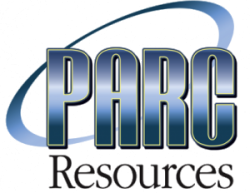Our Mission
-
to bring excellent professional consulting services to the Western US, especially rural areas.
-
to help even the smallest community stay competitive in today’s rapidly changing environment.
-
to ensure that everyone can have access to skilled professional consultants at affordable rates.
-
to offer the widest range of services and skills that only a professional consortium can provide.
-
to provide the highest professional quality services with sustainable results.
-
to remain a successful business through quality service and satisfied customers.
PARC Resources History
PARC Resources was founded in 1985, with the simple goal of providing high quality consulting services to improve the communities we call home and to serve as agents of change throughout the West.
With this philosophy as our cornerstone, we have been providing services to rural western communities for 25 years. Our commitment to quality long-term results has never wavered and today, PARC Resources can proudly point to hundreds of communities where our assistance has helped create a better place for thousands of people, both now and for future generations.
PARC Resources prides itself on having dedicated staff and associates who share a commitment to service, a love for diversity and an eagerness to help people build a better future. PARC Resources knows how to get the job done, whether it is building a multimillion-dollar facility or developing a five-year service program, we have the experience and knowledge our clients trust.
Our Team
How We Work
PARC Resources works on a not-to-exceed pricing structure, meaning that we assess a project’s components, develop a scope of work, and assign an estimated number of hours to a project, based on the scope of work. The estimated hours are multiplied by the hourly rate and we set a not-to-exceed price based on that calculation. We then add in the cost of travel and publishing (for planning documents). If the client agrees to the price, we put together a Memorandum of Understanding (MOU) to serve as a purchase order, that basically states that the client agrees to the scope of work and cost estimate. We will then complete the work, billing the client per hour until the not-to-exceed price is reached. Here are two examples of how this might work:
Example one – the client hires us to write a grant that we estimate will take 20 hours to complete. In actuality, the grant application only took 18.75 hours to complete, so the client was only billed for 18.75 hours and the project was completed under budget. This is rare as we usually underestimate our hours to remain competitive, but it does happen from time to time.
Example two – the client hires us to complete a strategic plan with a scope of work designed to take 50 hours to complete. In actuality, the project took 55 hours, but the client was only billed for 50 hours because we had reached the not-to-exceed price limit.
In either case, the client got the best price we can offer for a project. We do this to remain budget-friendly, as we know that resources are limited and we want to make sure our clients receive the best value possible. Occasionally, the client will request a modification to the scope of work mid-project – such as an extra trip to the region, community meeting, or additional research. These modifications are fine, but might result in additional costs due to the change in scope of the project. We will always discuss additional charges and receive approval prior to completing the work so that our clients do not receive surprise charges.


